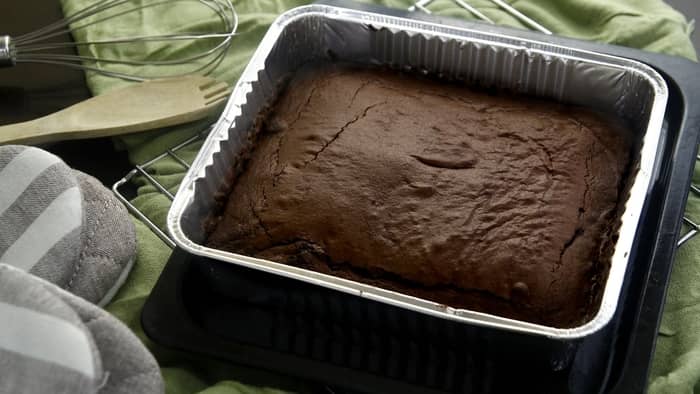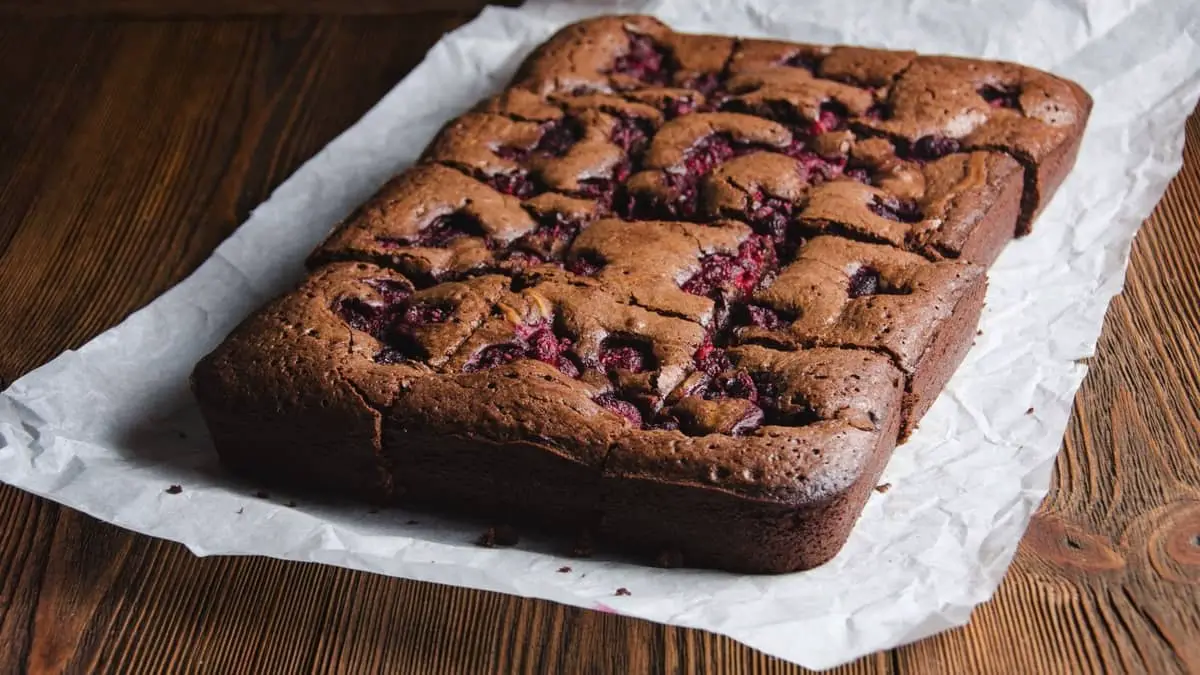Last Updated on March 18, 2022
Many people are familiar with the fact that cakes and bread rise as they bake, but do brownies rise? Chewy and fudgy, brownies are quite different from other desserts. They have an irresistible taste and a delicious texture that you just can’t beat.
Whether you make them from a box or from scratch, brownies are full of chocolaty goodness. They are great for bringing to any special event, as they are sure to be a hit. Whenever you make them, be sure to take proper steps to ensure they come out just right.
Do Brownies Rise?
Though they do not rise as much as other baked goods, brownies do rise as they bake. As brownies rise as they bake, they reach their desirable texture.
Though it may not be as important as it is for bread or cake, rising is still an important step for brownies. If they didn’t rise at all, they would be dense and too chewy.
How much do brownies rise?
How much a brownie rises depends on the type of brownie. The main types of brownies are fudgy, cakey, and chewy.
Fudgy brownies tend to have more fat and less flour than other brownies. They have a super moist, dense chewy consistency. They tend to have delicious gooey centers and they do not rise as much as they bake.
Cakey brownies have a similar consistency to cake. Unlike other brownies, they have a lighter, airy consistency and rise the most out of all the brownies, but still not as much as cake does. Cakey brownies have more baking powder and flour and less flour.
Chewy brownies are the most classic type of brownie. They are chewy on the corners and tender in the middle. They rise slightly more than fudgy brownies but not as much as fudgy brownies do.
What Causes Brownies To Rise?
The most common ingredients that cause baked goods to rise are yeast, baking soda, and baking powder. In addition, factors such as air and steam cause baked goods to rise as well.
In brownies, the main components that cause them to rise are baking powder, air, and steam. Air is incorporated into the batter of your baked goods while mixing. Steam occurs as the brownies bake in the oven.
Baking powder
Baking powder is a common ingredient in brownies, however, it is not found in all brownie recipes. Baking powder is generally an ingredient in cakey brownies and sometimes chewy brownies, but it is not generally used in fudgy brownies. Fudgy brownies tend to be thick and dense, so baking powder is not needed.
Baking powder causes brownies to puff up as they bake. Baking powder begins working when it comes in contact with a liquid and will cause baked goods to rise in the oven.
Eggs and sugar
Almost all brownie recipes call for eggs and sugar. When eggs and sugar are beaten together, air becomes incorporated into the ingredients. The air then expands in your oven as the brownies bake, causing them to rise.
Some recipes will cause causes for the eggs and sugar to be beaten together separately. Others will call for them to be mixed together with the other wet ingredients. The methods will vary by each recipe.
Sugar and butter
Mixing sugar and butter together is another way to incorporate air into a recipe. Many recipes will call for butter and sugar. However, only a few recipes will call for the butter and sugar to be creamed together.
When butter and sugar get creamed together, air gets incorporated into the ingredients. Some cakey brownies call for butter and sugar to be creamed together.
Chewy and fudgy brownies often call for softened or melted butter. When baking in the oven, the butter causes steam to be released, leading to brownies rising.
Brownie Pan with Dividers Nonstick Brownie Pans and Cutters
Tips For The Best Brownies That Aren’t Flat
When it comes to brownies, you don’t want them to come out completely flat. Fortunately, there are some great tips for making the best possible brownies, no matter what type you are making.
Use the right pan
Be sure to always use the right pan for brownies to ensure the best results. Depending on the recipe, the pan size will vary, so always use the specific size the recipe calls for. If you choose a pan too big, your brownies will be thin and overbaked if you choose a pan too small, your brownies will be underbaked.
Avoid overmixing
Though it is important to make sure all of the ingredients are incorporated, you want to avoid overmixing. Overmixing can cause too much air to be added, which will cause your brownies to deflate instead of rising. Be sure to mix just the amount the recipe says to.
Give them time to cool
Though nothing beats a warm brownie straight out of the oven, you need to give them some time to cool. Allowing your brownies to coll will give a cleaner cut and will allow the flavor to develop more. You can still enjoy them while they are warm, but you should let them cool for at least 30 minutes to one hour.

The Perfect Consistency Brownie
Brownies do rise slightly as they bake. Cakey brownies will rise more than fudgy and chewy brownies do.
Do you have any questions regarding do brownies rise? If so, please ask your brownie baking questions in the comments.
FAQs
How Much Does a Brownie Rise?
Brownies will generally rise about one to two inches as they bake. How much they rise will depend on the pan, recipe and type of brownie.
Why Did My Brownies Rise?
Your brownies will rise from baking powder, eggs, butter or sugar. In addition, air and steam will cause them to rise as they bake.
Why Won't My Brownies Rise?
There are a few reasons your brownies didn't rise. The most common reasons are you used a pan too big, you overmixed your ingredients or you didn't properly incorporate your ingredients together.
Do Brownies Fluff Up?
If you are making cakey brownies, they will fluff up some as they bake. This is due to the fact they have baking powder and more flour and less fat than other brownie recipes.

Ever since she was a young girl, Anna has been a lover of desserts. As an adult, she enjoys
baking a variety of desserts from cakes, cookies, brownies, bread, and more from scratch. She
enjoys sharing her passion for baking with others who also have a sweet tooth. From properly
measuring ingredients to making sure they are the correct temperature, Anna knows the
importance small details can make in baking. She wants to share her experience with others in
hopes they can make the most delicious baked goods. When she’s not busy blogging, Anna
enjoys trying new recipes in the kitchen.


